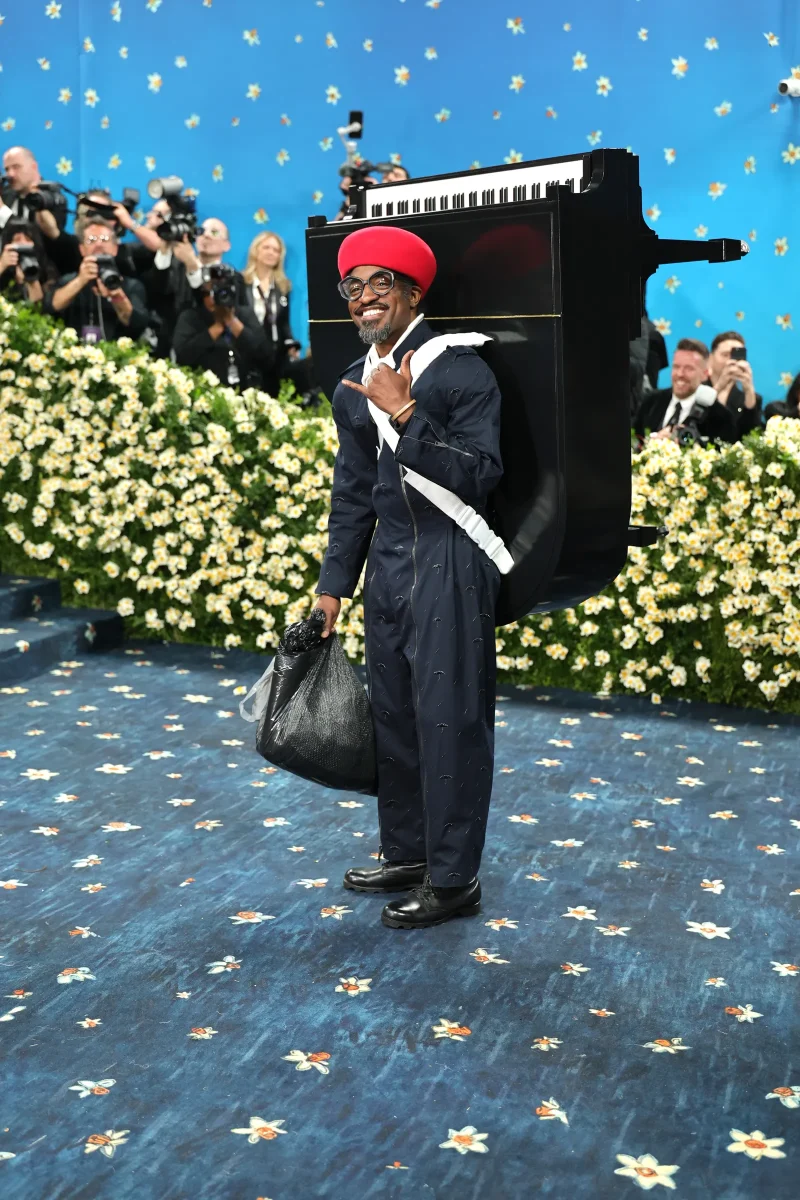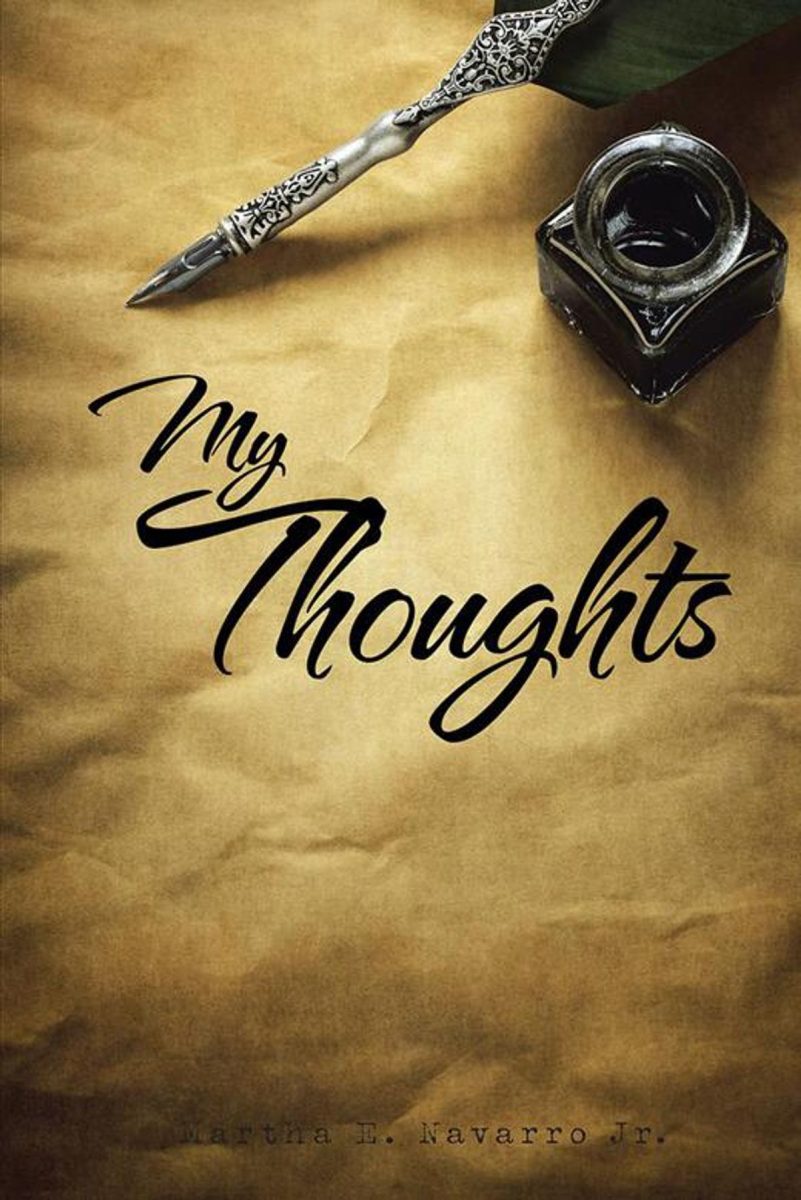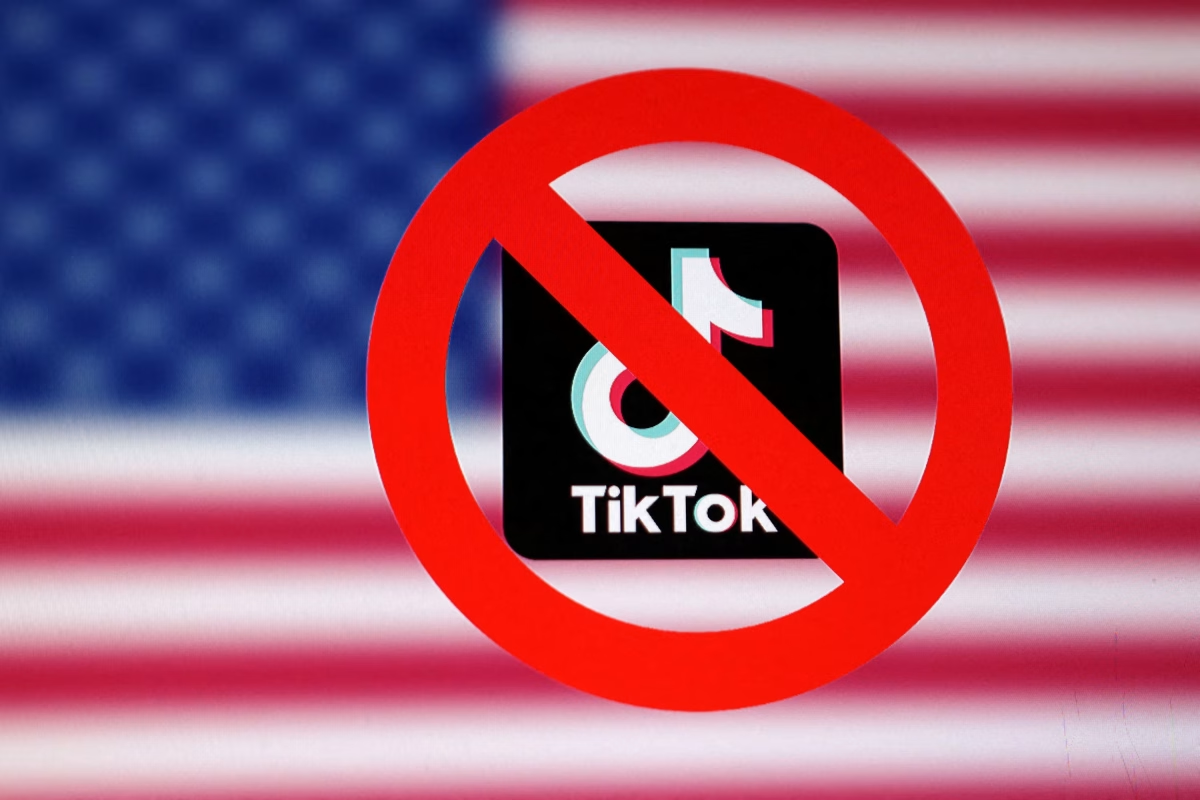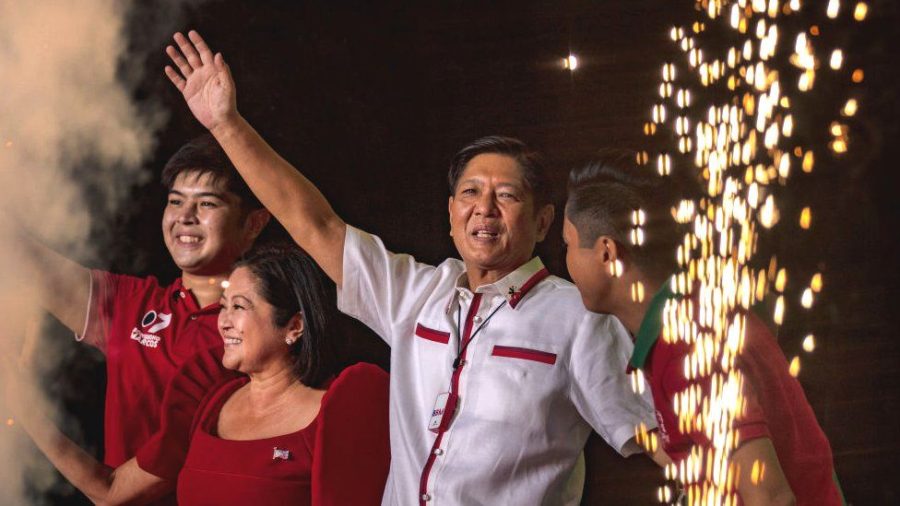The Power of Disinformation, Marcos Style
Ferdinand Marcos, Jr., appears on stage with his family during a rally. The Marcos family is notorious, among other things, for its nepotism, as Marcos, Jr’s son Sandro (left of Marcos) recently became a representative of Ilocos Norte. Credit: Getty Images
May 21, 2022
Today’s technology has allowed for a great number of things. It allows us to be connected with friends and family across the world, to access an entire world’s worth of information, and many other things. Unfortunately, the human tendency to utilize such technology for negative means has made it so that any new form of communication is instantly used for wrongful gain.
Many governments, most notably that of the Russian Federation, frequently utilize “troll farms,” or groups of anonymous, state-sponsored internet commentators, to interfere with American affairs and with the intent to “sow discord” among the political sphere, according to the House Permanent Select Committee on Intelligence. This type of government-influenced propaganda, using the internet and new technologies, is not just limited to Russia, though. Freedom House, a non-governmental organization dedicated to tracking online free speech, found that leaders in at least 38 countries were utilizing the internet to spread propaganda in 2019.
While many discussions regarding the use of the internet and new technology to influence populations surround countries like the United States and Russia, governments and individuals around the world are willing to do anything to get ahead. In the Philippines, one such man used these tactics to great success.
Ferdinand Marcos Jr., otherwise known as Bongbong by supporters, has one of the most recognizable names in the Philippines, and not for good reasons. His father, Ferdinand Marcos, ruled the country with an iron fist from 1965 to 1986, and under his rule at least 3,257 people were killed, 70,000 were detained, and 34,000 were tortured. A majority of this happened under the 14-year martial law that began in 1972 and ended when Marcos was exiled in 1986.
During this time, Marcos additionally was able to steal at least $10 billion worth of money from the government and people, funding a lavish lifestyle that he and his family, most notably his wife Imelda, enjoyed, all while the Filipino population languished in poverty. Filipino people, for the most part, were not unaware of this and were quite happy when Marcos’ reign ended.
Unfortunately for literally everyone (except if you also steal millions of dollars from your own people), Marcos Jr. has made a successful campaign for president of the Philippines. After building up influence in the country, “serving” as a senator, he decided to run for president after current president Rodrigo Duterte’s term ended. One may think that with his family history, along with a general lack of any real experience, it would be impossible to make a meaningful campaign for the presidency. Despite all of that, he received a staggering amount of support and votes from the Filipino people, and is highly expected to win the presidency when the winner is formally announced later this month.
As expected, Marcos Jr. employed many dirty tactics to come out on top of the presidential race, utilizing technology and social media, especially Facebook, to great advantage. With 96.2% of Filipino internet users using Facebook, according to Statista, any sort of disinformation campaign would have had great effects. Marcos, clearly knowledgeable of Filipinos’ love of the internet, engaged in multiple disinformation and slander campaigns, aimed at reforming his family’s image and to discredit opponent Vice President Leni Robredo.
Using the popular app Tik Tok, many users have taken to glorifying the time spent under Marcos’ rule, a decidedly terrible time for most Filipino citizens. Los Angeles Times reporter David Piersen describes how the “slick videos portraying the Marcos family as a political dynasty that brought Kennedy-esque glamour and global respect to the presidential palace” are being used to sweep one of the darkest areas of post-colonial Filipino history under the rug. “The snippets establish a narrative, but more importantly for millions of young Filipinos, they deliver a vibe,” Piersen writes.
Videos of President Marcos strutting along to Coolio’s “Gangsta’s Paradise” and edits featuring a young Marcos Jr. set to Doja Cat certainly paint a prettier image than reality, especially according to Ronald Mendoza, dean of the Ateneo School of Government in Manila. “They’re trying to win over a chunk of the Filipino population who never went through the…difficulties and human rights violations of the martial law years,” Mendoza says, adding that the youth were being misled by a “false nostalgia.”
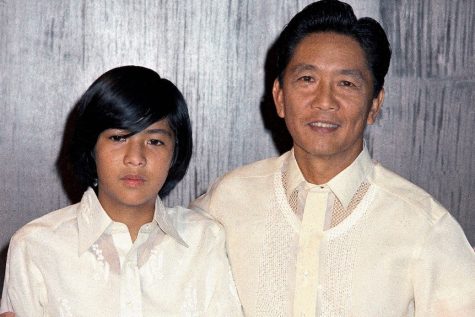
This is not limited to Tik Tok, however, as online trolls seem to cross-post thousands of pro-Marcos propaganda between YouTube, Facebook, and Tik Tok everyday. Marcos has a YouTube channel, dedicated to posting admittedly high quality vlogs of his daily life and updates on his campaign. His channel garners millions of views and has over 2.5 million subscribers, most of whom are ardent supporters of the politician. Many of the comments are extremely supportive, singing the praises of a supposed Filipino resurgence under Marcos Jr.
Campaign tactics using the internet are common in the country, with one political strategist in the capital city of Manila paying hundreds of dollars for influencers to support his candidate. “We identify which TikTokers have the most followers in certain areas and enlist them to make videos,” said the anonymous source. The source then went on to describe how Marcos Jr.’s campaign is similar but on a much larger scale, though Marcos denies any connections to such tactics.
Vice President Robredo has not been safe from such tactics, either. Deemed “toxic, divisive, and acrimonious” by the Marcos campaign, she has been accused of having connections to the Communist Party of the Philippines, which has been involved in an insurgency inside the country for decades. Known as “red-tagging,” the practice of labeling someone a communist or as one sympathetic to their cause has seen a resurgence in popularity under President Duterte, resulting in the killings of many innocent activists, lawyers, and journalists.
Allegations like these, especially in a country where over 33 journalists have been killed over the past 10 years, according to the organization Reporters Without Borders, are incredibly dangerous, not only to Robredo’s campaign and image but to her life. Such efforts to smear her image have been decried by her spokesperson, Barry Gutierrez. Calling the allegations “fabricated” and “fictitious,” he was quick to outline to reporters the gravity of the situation. “This is not a vlogger, it’s not some random influencer on social media putting out criticisms. This is supposedly a respectable member of the journalism profession.”
In a country where only 6% of the pages in a history textbook for fifth and sixth graders contain teachings about the martial law era, it is important that the population become knowledgeable on the situation and the potential ramifications of electing the son of a known thief and murderer. Korraine Mangoang, a 22-year-old student, is just one out of millions of examples of the youth being brainwashed into believing the lies of the Marcos family. “The Marcos family legacy was a golden age of peace and prosperity,” Mangoang believes after seeing videos featuring the family on Tik Tok. Planning to vote for Marcos Jr., she denies any accusations of his father’s multiple human rights offenses.
With Marcos and his mother Imelda facing an arrest warrant in the U.S. over their many crimes and failures to show up to court, it is somehow both shocking and understandable how he managed to garner such support. One can only hope that the Philippine government can work out its issues and prevent such a candidate from running ever again.


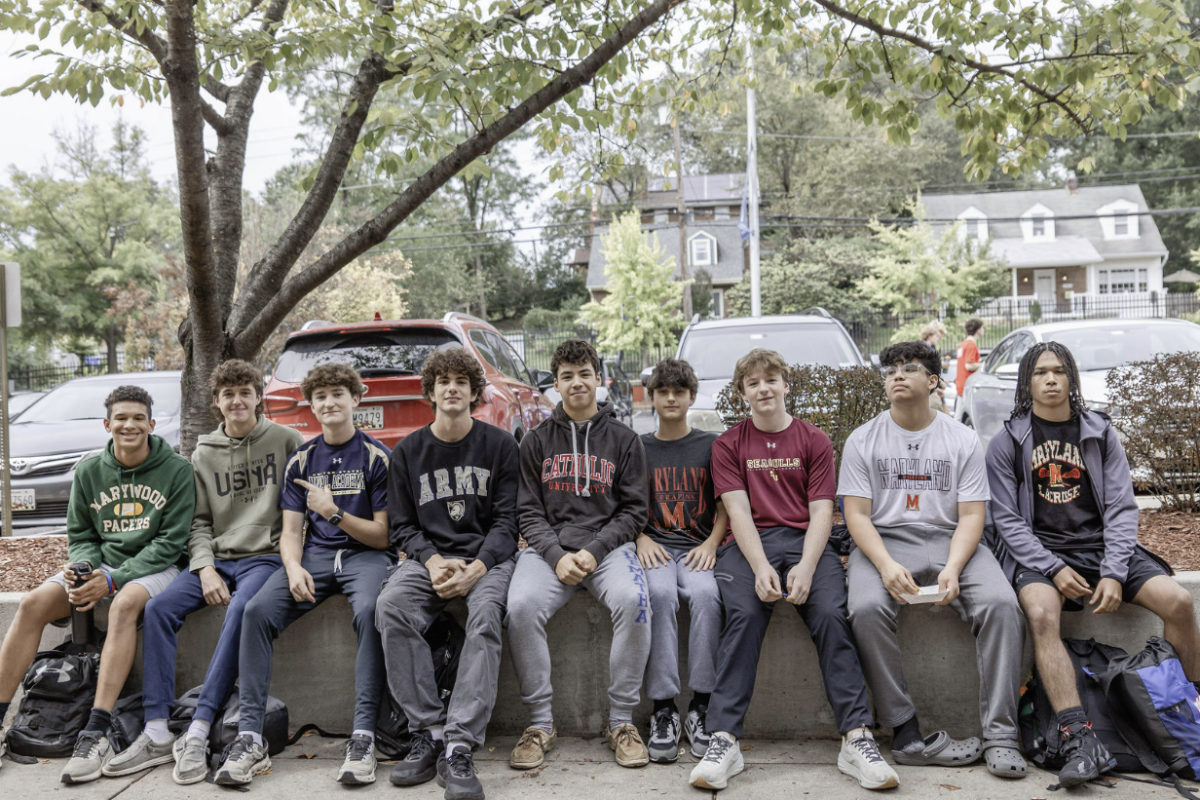
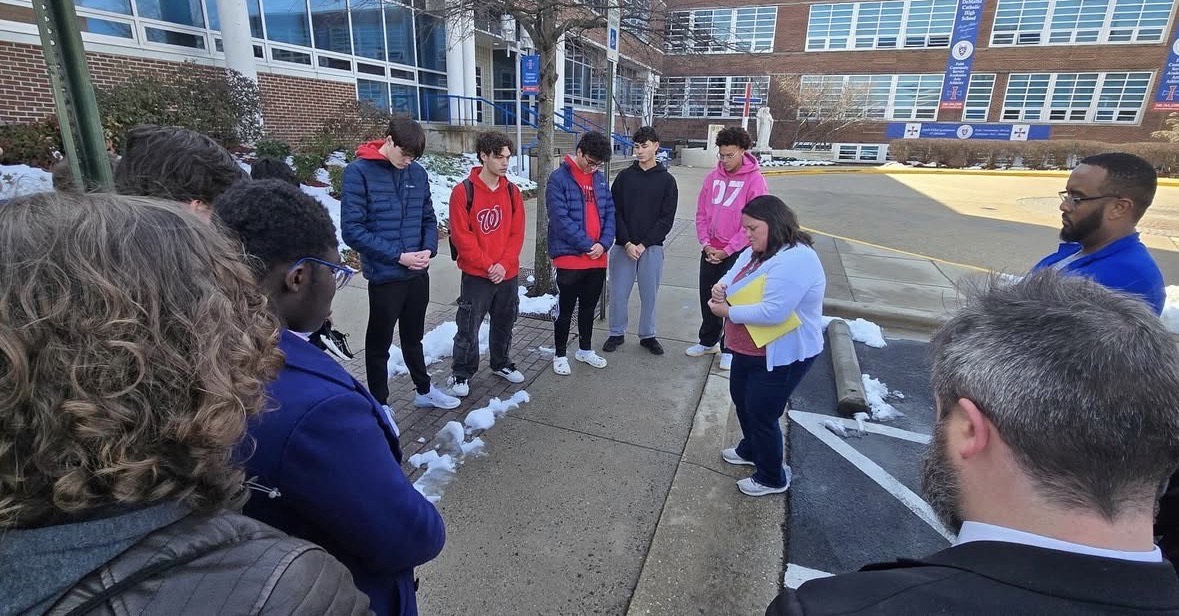
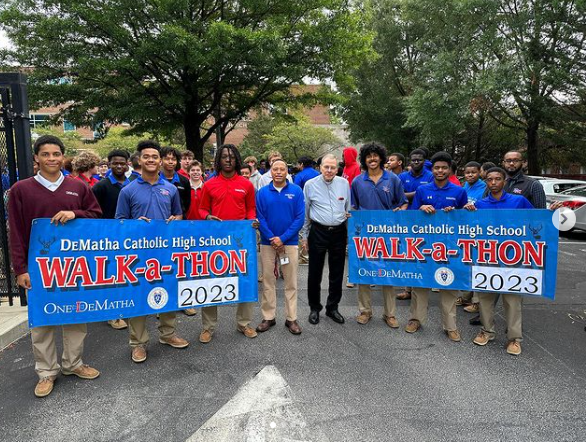
![Washington Catholic Athletic Conference. [WCAC photo library] 2025, October, 18. wcacsports.com.](https://demathastagline.com/wp-content/uploads/2025/10/Screenshot-2025-10-16-8.29.25-AM.png)




